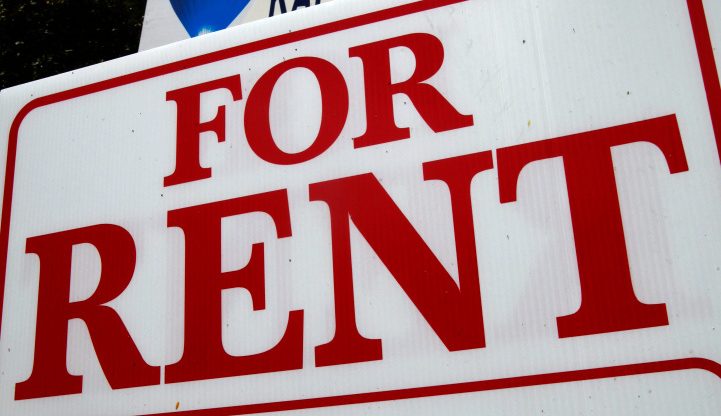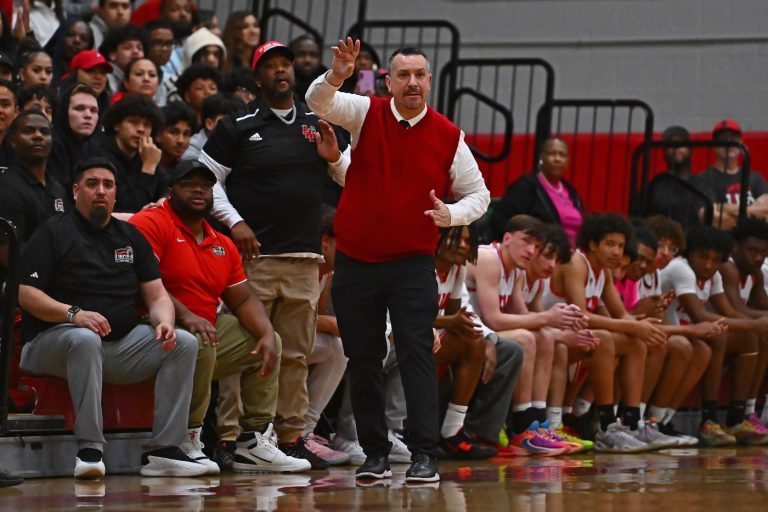Downtown Huntington Beach in 2023 (Photo by Jeff Gritchen, Orange County Register/SCNG)
This is part three in a series of columns about Nathan Young’s rehab business in Southern California. Part 1. Part 2.
“Location, location, location,” crowed the ad for this handsome Huntington Beach manse on Second Street, less than two blocks from the cobalt blue Pacific.
“Steps to the sandy beach and more. Ocean views off the front patio and master bedroom. Situated on one of the best streets downtown…. watch the beautiful sunrise, sunsets and airshows from any part of the property.”
Similar 4-bed, 3.5-bath beauties in this area rent for between $8,000 and $9,000 a month, listing services say. But Nathan Young and 9 Silver — then one of the sober home operations in Young’s vast and troubled addiction treatment empire — paid $18,000 a month for this one in April 2022, according to court records.
The landlords were pleased — until the rent stopped coming.
In January 2023, there were unanswered demands for payment. Notices to quit filed in court. And, in a scenario that has repeated at many rental properties in Southern California, months passed before tenants cleared out and the property could go on the market again.
“At least they didn’t destroy the house,” said investor Mai Ta, referencing the nightmare scenarios sketched by other landlords in legal actions against Young and his sober living companies, 9 Silver and 55 Silver. Some landlords have tallied losses of more than $100,000 in court documents.
In some pricey tussles where Young agreed to pay top dollar for rental properties, then stopped paying, he has invoked the shield of disability that protects recovering addicts, sometimes charging landlords with discrimination, harassment, failing to provide a livable abode and violating the Americans With Disabilities and Fair Housing acts.
It can get ugly.
“You have breached the Lease and are causing a nuisance by yelling, screaming and fighting on the premises and surrounding areas; trespassing; using illegal drugs in the premises and common areas resulting multiple persons overdosing on or about the premises; racing cars down the street around the premises; and you have allowed trash to accumulate in the common areas,” said the notice delivered to the waterfront home Young rented for $14,000 a month on Venture Drive, facing the Main Channel of Huntington Harbor, dated Sept. 7, 2022.
“The police have been summoned to the property on numerous occasions due to these actions. Further, you are running a business at the premises in violation of the Lease and Huntington Beach City Code….
“In addition, there are numerous unauthorized occupants at the premises. You are hereby directed to permanently remove all adults not authorized to live there; cease operation of business within the premises; cease yelling, screaming and fighting; cease racing cars down the street; cease accumulation of trash in the common areas of the Premises; cease trespassing; and cease use of illegal drugs in the common areas of the Premises.”
The episode cost landlord ZR Trust more than $110,000, according to court paperwork, including nearly $36,000 in unpaid rent; $30,000 to replace damaged furniture; more than $14,000 to replace filthy, damaged carpets; and $11,500 to repaint the whole house due to “very dirty walls,” according to court documents.
It’s not just an issue for landlords. Neighbors have long complained that the high rents addiction-related businesses can pay warp local housing markets, pushing out regular buyers and renters, driving up costs and, too often, driving down quality of life.
A message to Orange County real estate agents earlier this year sought help with “a unique client need.” A sober living treatment provider was looking for a four-plus bedroom home with a pool and ocean view between Newport Beach and San Clemente — and would pay up to $35,000 a month.
Trouble
Related Articles
California’s huge health care expansion has an unintended consequence: Closure of addiction, mental health treatment options
What to know about protonitazene, a deadly drug even more powerful than fentanyl
Addicts trafficked cross country to California by ‘army of fraudsters,’ new lawsuit alleges
After pandemic explosion, California drug overdose deaths are falling fast
How should the opioid settlements be spent? Those hit hardest often don’t have a say
The Southern California News Group has been reporting on Young’s embattled network of addiction treatment facilities and sober homes for months.
Hundreds of substance users have been recruited from other states for “free” treatment in California, often paid for with Blue Cross Blue Shield of Oklahoma health insurance policies, they said.
After completing expensive, in-patient residential treatment at licensed homes, patients said they were transferred to unlicensed sober living homes that were “4/20” friendly, meaning they were allowed to smoke marijuana as they continued with outpatient addiction treatment.
This phase consisted of many hours of online therapy sessions packed with dozens of people, they said. Health insurers were billed whether patients participated or not, and workers were encouraged to exaggerate patients’ conditions to justify higher billings, according to state documents and lawsuits filed against Young and the companies.
Patients paid just $5 a month to live in the sober homes, they said, apparently satisfying a California law forbidding free housing as an enticement to keep patients in a particular outpatient program.
Some patients were bothered by what they saw. Insurance oddities. Overdoses. Deaths. A woman came before her new insurance kicked in had to wait for treatment; she died of an overdose in the interim, according to friends and her autopsy report. Others overdosed and died in the very sober homes where they were supposed to be recovering. Patients were hired to work for the company treating them, and the company broke myriad wage and employment laws, according to lawsuits and complaints to state officials.
Young’s network weaponizes addiction for profit, insurance giant Aetna has charged in a $40 million lawsuit. One of his sober living homes was denounced as a “haven for drug abuse” and sued by authorities in Beverly Hills. The state of Delaware issued a “Scam Alert” about his operations in June.
Yet many of Young’s rehabs keep their state licenses and certifications even as state regulators try to revoke others, calling them “harmful to client health and safety.”
Young is fighting the state’s allegations and filed a countersuit against Aetna, asserting that the insurance giant greedily endangers addicts’ lives by cutting treatment short. His businesses are dedicated to addressing the scourge of addiction and helping people recover, he said through a spokesman, especially those on the lower rungs of the economic ladder.
Unlike many other treatment facilities, Young’s are willing to treat homeless people, those with behavior issues, prior convictions or other law enforcement history that “fancier” providers might turn away, Young’s countersuit against Aetna said.
Last month, Blue Cross Blue Shield of Oklahoma said it will stop paying for most addiction treatment in California on Jan. 1. About 1,000 people were discharged from Young-related houses and offered tickets home, a spokesman for Young said.
Sober living at that scale can’t happen without relying on the rental housing market.
As Blue Cross Blue Shield cuts back, Aetna refuses to pay and houses empty out while leases remain in effect, there may be more landlord conflicts to come.
Christine Hand and Anthony Morrison have raised concerns about a treatment center.They are pictured on Wednesday, July 24, 2024. (Photo by Mindy Schauer, Orange County Register/SCNG)
Rental value ‘excessive’
Landlord Charles Walters rented Young the historical revival cottage on North Sierra Bonita — between Sunset and Hollywood boulevards in West Hollywood — in July 2022. With its intricate custom woodwork, sparkling pool and pool house, four bedrooms and baths and great location, Zillow estimates the rent at about $15,000 a month.
Young agreed to pay $22,000 a month, bumping up to $24,000 in the second year of the lease, according to court documents.
It wasn’t exactly smooth sailing.
Over about eight months in 2023, police responded to 10 emergency calls at the house, including for disputes and disturbing the peace, according to records from the Los Angeles Police Department.
By last December, rent payments had stopped. Walters soon filed legal paperwork to evict Young, detailing more than $200,000 owed for the remainder of the lease, utility reimbursements and late fees.
Young’s official answer came more than three months later. The landlord “breached the warranty to provide a habitable premises” and violated Young’s rights under the ADA, Unruh Civil Rights Act and Fair Employment and Housing Act, Young’s filing claimed. The landlord also served the eviction notice as retaliation, “arbitrarily discriminating against (Young) in violation of the Constitution or the laws of the United States or California,” it said.
Also — the rent set for the home was “excessive;” fair market value is “far less” than plaintiff claims, Young’s filing said.
Another $18K a month home
Residence at 8420 Carlton Way, Los Angeles on Monday, Dec. 2, 2024. (Photo by Dean Musgrove, Los Angeles Daily News/SCNG)
In January 2022, Daniel and Elizabeth Rogosin rented a “Spanish jewel” on Carlton Way in Los Angeles to Young and 9 Silver.
“Situated just off the Sunset Strip, this Spanish jewel is the epitome of Hollywood Hills living,” the real estate listings say. “With many original details, including a speakeasy, the home’s charm and tranquility resonate throughout property…. The large pool, multiple terraces, lush gardens, and expansive living room make the home ideal for entertaining.”
Young agreed to rent the place for $18,000 a month. Zillow estimated the rental value at $14,750.
In the span of about 10 months in 2023, there were seven emergency calls to the house, most late at night or early in the morning, for a series of disturbances, according to records from the Los Angeles Police Department.
In October 2023, the rent payments stopped. The Rogosins filed notice for Young to pay up or leave. Young was gone by the end of November, but owed the landlords more than $153,260 for unpaid rent, the remainder of the lease, repair costs and legal fees, court paperwork said.
Residence at 8420 Carlton Way, Los Angeles on Monday, Dec. 2, 2024. (Photo by Dean Musgrove, Los Angeles Daily News/SCNG)
An itemized list said that it cost more than $24,000 to repair and treat the septic system; $6,000 to repaint the interior; more than $3,000 for curtains and curtain rods; $2,800 to fix broken windows, holes in walls and missing molding; $2,400 for an antique end table; and much more. After keeping Young’s $36,000 security deposit, he still owed $117,260, the suit said.
SCNG has reviewed several other rental disputes involving Young that landed in court. He’s fighting this one.
“There is no factual basis for an account stated cause of action against Young,” one of his filings said. “The prior transactions, if any, were between Plaintiffs and 9 Silver LLC, not Young. There was never any agreement on a correct sum owed, or that Young agreed to pay the amount that was thus determined to be owing…. Young is not a party to the lease agreement. He is a guarantor of the lease.”
The landlords “concealed certain facts … regarding the quality and nature of the property” and, if Young had known about them, he wouldn’t have “leased/guaranteed” the property. Any damages they suffered is due to their own negligence, the filing said.
Also, they violated the Americans With Disabilities Act and the California Fair Employment And Housing Act, it said.
‘Things got weird’
Nava Nassiri’s family lives next door to Santa Monica Detox, one of Young’s state-licensed facilities. Once, it was the Young family home, she said. “We would dog sit,” Nassiri said. “It was a family.”
But over the last year, things changed. It was licensed on Dec. 31, 2023, as a detox, the most tender part of treatment as people come off drugs and/or alcohol.
“Things got weird,” Nassiri said.
Loud music. Smoke alarms screeching. Cars with Oklahoma plates. A parade of people in and out each day, some hauling trash bags full of belongings. Arguments — shouting, whining, crying and cussing — in the dark of night. “Leave me alone!” someone screams in one of several recordings made from inside the Nassiri home.
There have been at least a dozen emergency calls to the property, including for mischief and disturbing the peace, according to police records. “It has been a complete disaster. Cops, ambulances, and no one can tell us anything,” Nassiri said.
She and other neighbors have reached out to officials, but to little avail.
“I’ve lived in this neighborhood for almost 35 years and have never felt unsafe in my own home,” wrote another neighbor, Suzanne Brand, in an email to the city.
“I’ve been woken up at least a dozen times to screaming and fighting in the driveway. My family has watched at least two people be carted out by ambulance because of apparent overdose…. .They play basketball outside my bedroom window at all hours of the day and night.”
The city has said there’s precious little it can do.
“I sympathize with the challenges of having a disruptive neighbor,” said an email from Romy Ganschow, chief deputy city attorney. “(T)he City of Santa Monica does not and cannot license these facilities and cannot prohibit them from operating in your neighborhood.”
That’s because the State of California reserves that job for itself. Critics have long argued that it does a terrible job, endangering lives. And sober homes of six or fewer people are not licensed at all. Legislation to give cities more enforcement power has repeatedly hit a brick wall in Sacramento.
“Should you be aware of any criminal activity at the location,” a city official said by email, “please continue to call.”












